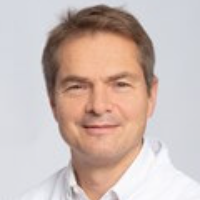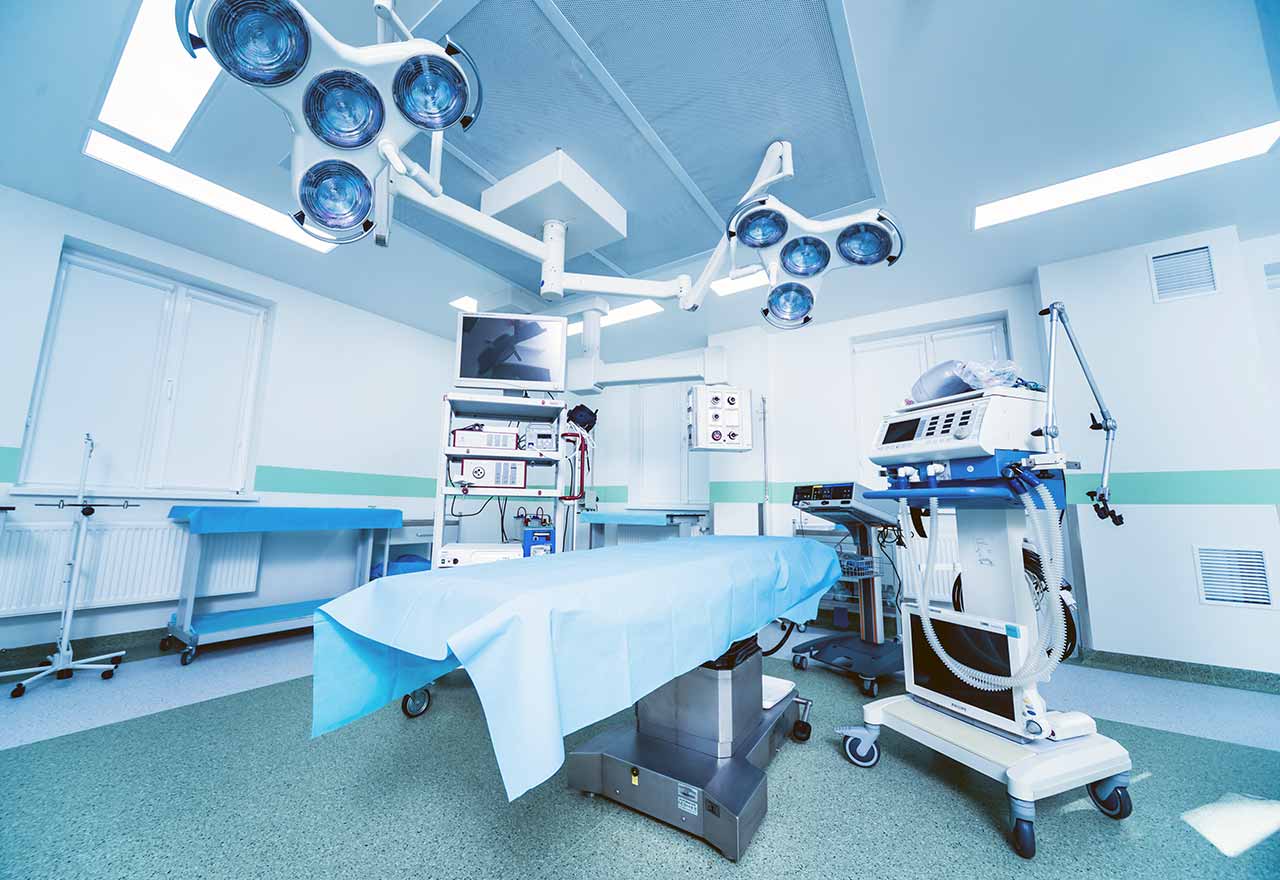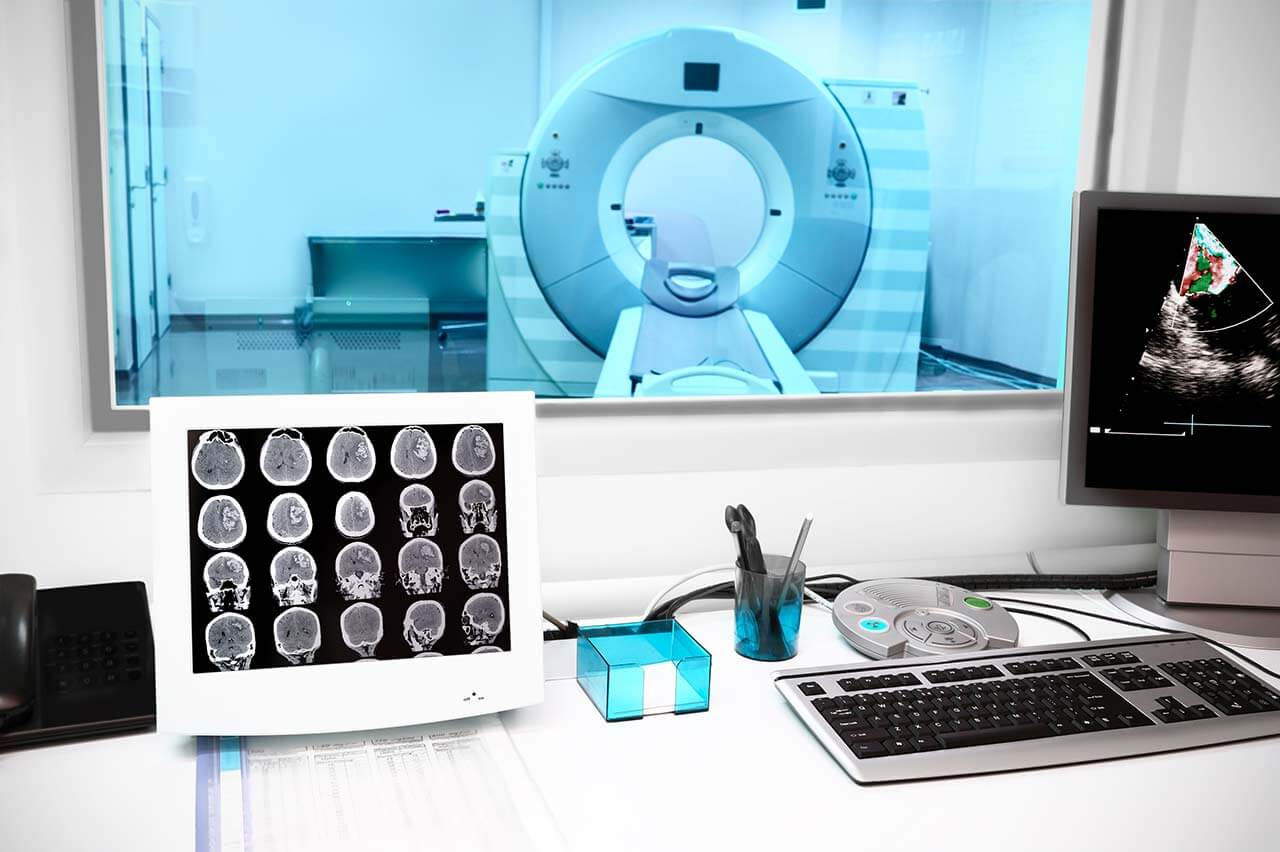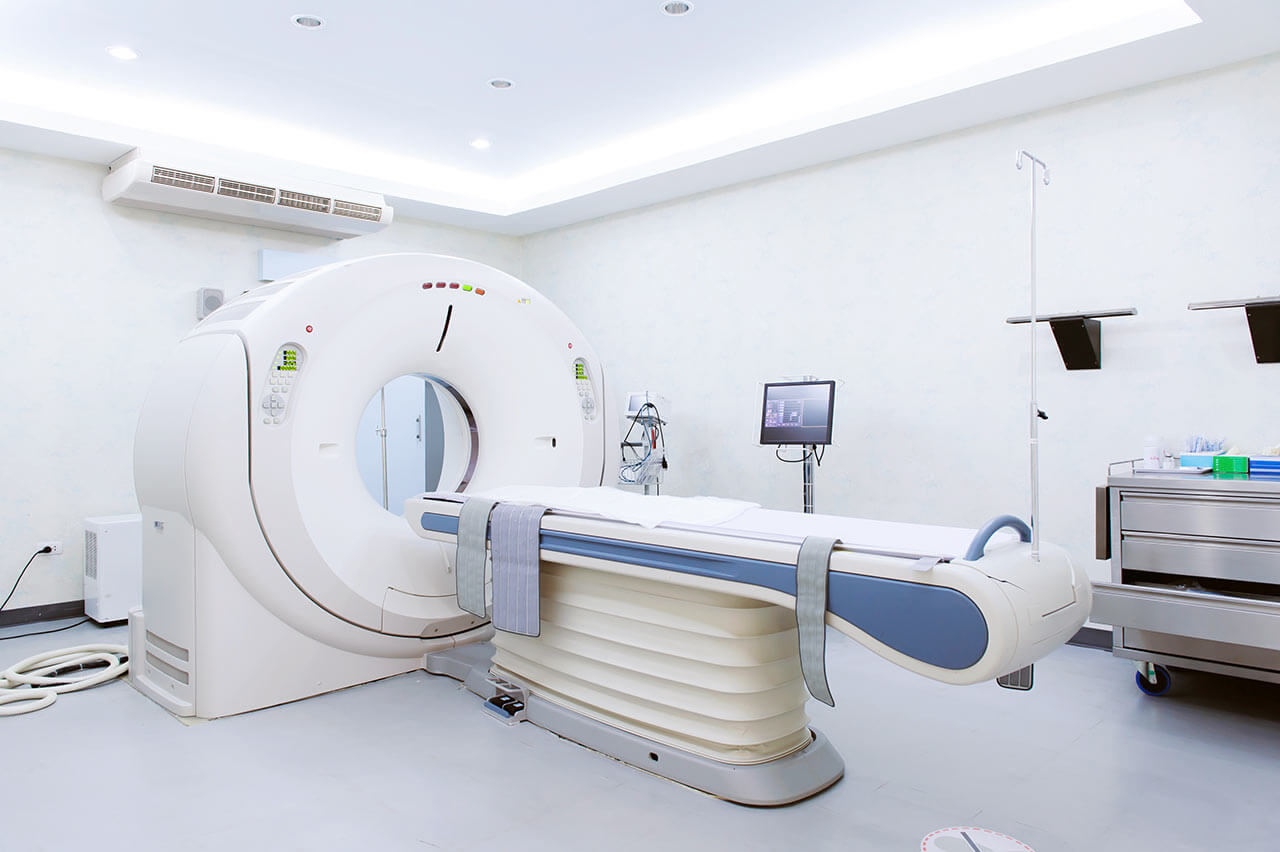
The program includes:
- Initial presentation in the clinic
- clinical history taking
- physical examination
- review of medical records
- laboratory tests:
- complete blood count
- general urine analysis
- biochemical analysis of blood
- TSH-basal, fT3, fT4
- tumor markers
- indicators of inflammation
- indicators blood coagulation
- ultrasound
- CT/MRI scan
- biopsy and histological examination
- preoperative care
- resection of tumor
- histologically and immunohistochemically examination of the remote tissues
- symptomatic treatment
- control examinations
- the cost of essential medicines and materials
- nursing services
- full hospital accommodation
- explanation of future recommendations
Required documents
- Medical records
- MRI/CT scan (not older than 3 months)
- Biopsy results (if available)
Service
You may also book:
 BookingHealth Price from:
BookingHealth Price from:
About the department
The Department of Pediatric Surgery at the University Hospital Hamburg-Eppendorf provides a full range of medical services in this specialty. The department operates on young patients with hernias, appendicitis, neck cysts and fistulas, intestinal intussusception, short bowel syndrome, achalasia cardia, gastroesophageal reflux disease, hypospadias, epispadias, congenital lung defects, and other conditions. Of particular interest to the surgical team of the department are surgical interventions for benign and malignant tumors in children, injuries, burns, and rare childhood diseases. The department has the status of a Competence Center for Pediatric Trauma Surgery and is part of the Trauma Network in Hamburg with certification from the German Trauma Society (DGU). Most surgical procedures in children are performed using minimally invasive techniques without large skin and soft tissue incisions. The department's specialists operate on newborns, including premature infants, young children, and adolescents under the age of 18. Surgeons work hand in hand with physicians from other departments at the university hospital, including pediatricians, pediatric oncologists, obstetricians, and trauma surgeons. There are 30 inpatient beds in the department, while minor surgeries are usually performed on an outpatient basis. More than 5,000 surgical procedures are performed in the department's operating rooms each year with excellent results. The medical facility enjoys a reputation as one of the largest and most competent children's clinics in Germany. The Head Physician of the department is Prof. Dr. med. Konrad Reinshagen.
An important specialty of the department is neonatal surgery. More than 3,000 children are born each year in the Department of Obstetrics at the University Hospital Hamburg-Eppendorf. Unfortunately, newborns can have congenital defects and pathologies that require surgical intervention. The specialists in the department have extensive experience in performing operations for diaphragmatic hernia, esophageal, duodenal and small bowel atresia, intestinal duplication, necrotizing enterocolitis, gastroschisis, omphalocele and Hirschsprung's disease. Whenever possible, the department's specialists prefer minimally invasive surgical techniques, which reduce surgical risks and facilitate the child's recovery after surgery.
An integral part of the daily work of the department's team is performing surgery to resect benign and malignant tumors in children, the most common of which are hemangiomas, neuroblastomas, nephroblastomas, hepatoblastomas, soft tissue sarcomas, and germ cell tumors. Young patients with these tumors receive medical care in close collaboration with pediatric oncologists: specialists meet weekly in a tumor board to discuss each clinical case and develop the most effective treatment plan for the child. A child with oncopathology almost always requires surgery to remove the tumor, after which a course of chemotherapy, targeted therapy, radiation therapy, or other treatment modalities may be prescribed.
The department's surgeons are justifiably proud of their excellence in trauma surgery. The doctors treat a wide range of injuries in children: fractures of the upper and lower extremities, complex post-traumatic elbow deformities, osteochondritis dissecans of the elbow, hand injuries with severe damage to tendons, nerve endings and blood vessels, cruciate ligament ruptures, meniscus tears, patella dislocations, congenital and post-traumatic axial deformities of the knee, shoulder instability, post-traumatic ankle cartilage lesions, and ankle instability. In many cases, the department's specialists are able to achieve good results using conservative methods. If a child requires surgery based on clinical indications, it is performed using minimally traumatic arthroscopic techniques. It should be noted that the department's surgeons also specialize in the treatment of fire and steam burns in children, including skin plastic surgery.
The main areas of the clinical practice of the department are as follows:
- General pediatric surgery
- Surgery for median and lateral neck cysts
- Surgery for inguinal, umbilical, and epigastric hernias
- Surgery for urachal cysts
- Surgery for hypertrophic pyloric stenosis
- Surgery for intestinal intussusception
- Surgery for appendicitis
- Surgery for Meckel's diverticulum
- Surgery for cryptorchidism
- Surgery for phimosis
- Surgery for hydrocele
- Neonatal surgery
- Surgery for diaphragmatic hernias
- Surgery for esophageal atresia
- Surgery for duodenal atresia
- Surgery for small bowel atresia
- Surgery for intestinal duplication
- Surgery for intestinal malrotation
- Surgery for meconium ileus
- Surgery for necrotizing enterocolitis
- Surgery for gastroschisis and omphalocele
- Surgery for anal atresia and anorectal malformations
- Surgery for Hirschsprung's disease
- Pediatric trauma surgery
- Conservative and surgical treatment of bone fractures
- Conservative and surgical treatment of fire and steam burns
- Conservative and surgical treatment of dislocations
- Conservative and surgical treatment of blunt abdominal trauma
- Conservative and surgical treatment of lacerations
- Conservative and surgical treatment of post-traumatic syndromes
- Pediatric colorectal and gastrointestinal surgery
- Surgery for anal atresia and anorectal malformations
- Surgery for Hirschsprung's disease
- Surgery for short bowel syndrome
- Surgery for gastroesophageal reflux disease
- Surgery for gallstone disease
- Surgery for achalasia cardia
- Surgery for hereditary spherocytosis
- Surgery for liver cysts and abscesses
- Surgery for inflammatory bowel disease (ulcerative colitis and Crohn's disease)
- Pediatric urology
- Surgery for hypospadias
- Surgery for epispadias
- Surgery for bladder exstrophy
- Surgery for ureteral stenosis
- Surgery for vesicoureteral reflux
- Surgery for cloacal malformation
- Surgery for cryptorchidism
- Pediatric thoracic surgery
- Surgery for funnel chest and keel chest deformities
- Surgery for pleural effusion and pleural empyema
- Surgery for congenital lung malformations
- Surgery for branchiogenic cysts
- Surgery for lung and respiratory tract tumors
- Pediatric cancer surgery
- Surgery for hemangiomas
- Surgery for neuroblastomas
- Surgery for nephroblastomas
- Surgery for hepatoblastomas
- Surgery for soft tissue sarcomas
- Surgery for germ cell tumors
- Pediatric plastic surgery
- Surgery for hemangiomas
- Surgery for burns
- Surgery for skin tumors
- Surgery for gynecomastia
- Surgery for pilonidal sinus
- Surgery for polydactyly and syndactyly
- Otoplasty for the correction of prominent ears
- Scar revision
- Other medical services
Curriculum vitae
Since 2012, Prof. Dr. med. Konrad Reinshagen has been Head Physician of the Department of Pediatric Surgery at the University Hospital Hamburg-Eppendorf. Since 2012, he has also been Head Physician of the Department of Pediatric Surgery at the Children's Hospital Altonaer in Hamburg. Prior to this, Prof. Reinshagen worked as a Senior Physician in the Department of Pediatric Surgery at the University Hospital Mannheim. In 2020 and 2021, the specialist was President of the Congress of the German Society for Pediatric Surgery (DGKCH).
Prof. Konrad Reinshagen's clinical practice focuses on surgery in children for hernias, appendicitis, phimosis, hydrocele, and neck cysts, surgery in newborns for congenital defects, surgical treatment of traumatic injuries in children, including burn injuries, surgical correction of chest wall defects and congenital lung defects, and cancer surgery.
Photo of the doctor: (c) Universitätsklinikum Hamburg-Eppendorf (UKE)
About hospital
According to the Focus magazine, the University Hospital Hamburg-Eppendorf is one of the top ten hospitals in Germany!
Since its foundation in 1889, the hospital has taken a leading position in the European medical arena, which it still holds today. A highly competent medical team of more than 15,300 employees takes care of the health of patients. Approximately 2,900 of them are physicians and researchers, and more than 3,400 work as nurses and therapists. The hospital has 1,738 beds for inpatient treatment, and many diagnostic and therapeutic services are provided on an outpatient basis. A solid foundation for successful clinical practice in the medical complex is formed by a combination of research achievements with state-of-the-art equipment and the highest professionalism of doctors. In addition, the hospital has a modern and extremely comfortable infrastructure. The most important value for every employee of the University Hospital Hamburg-Eppendorf is the health and well-being of every patient.
The medical facility was the first university hospital in Europe to implement an electronic system for storing patient medical reports. As a result, all diagnostic and treatment protocols are stored electronically. In 2011, the hospital was certified as the first fully digital hospital in Europe.
The hospital represents all areas of modern medicine. The doctors of the healthcare facility have a wealth of theoretical knowledge and vast clinical experience, which allows them to easily cope with the treatment of both common and extremely rare, complex clinical cases. About 550,000 patients are treated here each year, over 450,000 of whom receive outpatient medical care.
An important part of the work of the University Hospital Hamburg-Eppendorf is research activities aimed at developing innovative diagnostic and treatment methods. The main areas of research of the hospital include neurobiology, oncology, cardiovascular research, and research on infectious and inflammatory diseases. Special attention is also given to research in molecular imaging and skeletal biology.
The hospital is distinguished by its first-class level of medical care, which is confirmed by numerous quality certificates of European and international standards: DIN EN IS0 9001 certificate, certificates of the German Cancer Society (DKG) in the treatment of breast cancer, colon cancer, gynecological cancer, prostate cancer, and other oncological diseases, certificate of the German Cardiac Society (DGK) in the treatment of acute coronary syndrome, certificate of the German Spine Society (DWG), and others.
Photo: (с) depositphotos
Accommodation in hospital
Patients rooms
The patients of the University Hospital Hamburg-Eppendorf stay in comfortable single and double bright rooms with a modern design. Each patient room has an ensuite bathroom with a shower and a toilet. The standard patient room furnishings include an automatically adjustable bed with an orthopedic mattress, a bedside table, a wardrobe, a table and chairs for receiving visitors, a telephone, a radio, and a TV. Wi-Fi access is available in patient rooms and throughout the hospital.
If desired, patients can stay in single enhanced-comfort rooms. These rooms are more spacious and are equipped with upholstered furniture, a safe, and a mini-fridge.
Meals and Menus
The hospital offers three meals a day: breakfast, lunch, and dinner. Breakfast and dinner are served in the form of buffets, and for lunch you can choose from several set menus – in total, more than 20 dishes are served for lunch, including vegetarian ones.
If, for some reason, you cannot eat all of the foods, you will be offered an individual menu. Please inform the medical staff about your dietary preferences prior to the treatment.
Further details
Standard rooms include:
![]() Toilet
Toilet
![]() Shower
Shower
![]() Wi-Fi
Wi-Fi
![]() TV
TV
Religion
Religious services are available upon request.
Accompanying person
During the inpatient program, an accompanying person may stay with you in a patient room or hotel of your choice.
Hospital accommodation
During the outpatient program, you may stay in a hotel at the hospital.
Hotel
During the outpatient program, you may stay in a hotel of your choice. Managers will help you choose the most suitable options.
The hospital offers a full range of laboratory tests (general, hormonal, tests for infections, antibodies, tumor markers, etc.), genetic tests, various modifications of ultrasound scans, CT scans, MRI and PET / CT, angiography, myelography, biopsy and other examinations. Treatment with medications, endoscopic and robotic operations, stereotaxic interventions is carried out here, modern types of radiation therapy are also used. The hospital offers patients all the necessary therapeutic techniques.
- Coiling and clipping of aneurysms of different localizations
- Transjugular intrahepatic portosystemic shunting in patients with portal hypertension
- Minimally invasive surgeries (da Vinci)
- Removal and reconstruction of mammary glands
- Hyperthermic intraperitoneal chemotherapy (HIPEC)
These are arteriovenous malformations and angiomas, vascular aneurysms, pathologies of the mammary glands, pelvic organ prolapse, urinary incontinence, malignant tumors of various localizations (area of special attention is treatment of intestinal cancer), pathologies of liver and pancreas, cataracts and rare ophthalmic pathologies (aphakia, aniridia ), infertility and other diseases.
- Interventional neuroradiology
- Mammology
- Oncology
- Gastroenterology
- Surgery
Over 2,900 highly qualified physicians and researchers work at the hospital.





